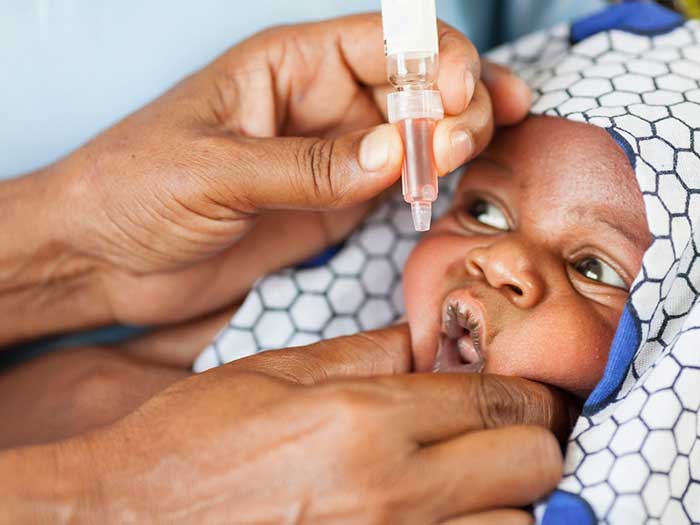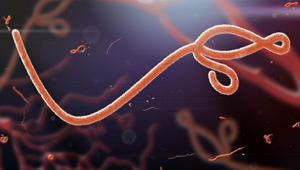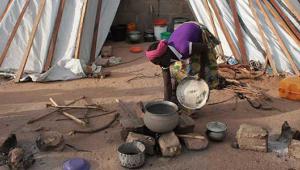web_poliovaccination_istock_36184508_medium.jpg

A child being vaccinated for polio
The government and international health machinery will now undertake a sweeping immunisation and surveillance campaign in the affected area in particular, but also across Nigeria and in some neighbouring countries.
Matshidiso Moeti, the World Health Organisation’s regional director for Africa, confirmed the “overriding priority” at the moment is to rapidly immunise all children in the affected region and ensure no more “succumb to this terrible disease”.
Polio can attack the brain and spinal cord and cause irreversible paralysis within hours, leaving its victims permanently disabled.
It is most common in children and spreads in areas with poor sanitation, linking its transmission to conflict.
Until recently, much of Borno state had been under the control of militant group Boko Haram, and largely inaccessible to aid workers.
However after a military campaign by the Nigerian government, humanitarian agencies have been able to make inroads and reach the millions of people trapped in the region with limited access to food, water, sanitation and medicine.
Polio vaccination centres in the state have also been attacked by Boko Haram.
The WHO said it is not unexpected that the disease would be able to spread at a low level in areas where it is difficult to make contact and vaccinate children. It said there were also surveillance gaps in areas of Borno, as well as neighbouring countries.
The health programmes also contend with rumours that immunisation programmes are a plot to sterilise muslims.
As recently as 2012, Nigeria accounted for more than half of all the polio cases worldwide. Since then, the WHO said the country has made substantial strides in beating the disease thanks to concerted efforts by all levels of government, civil society, religious leaders and tens of thousands of health workers.
As of 24 July this year, Nigeria had been clear of polio infections for two years. The disease’s revival will be seen as a big setback for the west African country, which had been on track to be declared polio-free in 2017.
Michel Zaffran, director of polio eradication at WHO headquarters, said the organisation is confident that, with a swift response and strong collaboration from the government, polio can be eradicated from the country.
“This is an important reminder that the world cannot afford to be complacent as we are on the brink of polio eradication – we will only be done when the entire world has been certified as polio free,” he said.
Globally, eradication is painfully close. Only 21 cases have been reported in 2016, compared to 34 cases by this time last year.
As well as Nigeria, only two other countries – Pakistan and Afghanistan – are reporting polio. Four out of six WHO regions have been certified as polio-free, and only one of three types of the wild poliovirus are still circulating in the world.
However, the WHO pointed out that Nigeria’s two cases highlight the need to prioritise the immunisation of children in hard-to-reach areas such as the Lake Chad region, which spans several countries in West Africa.
UNICEF agreed that the cases underscore the urgency of eradicating the disease in conflict-affected areas.
“We cannot deny the connection between conflict and the continued threat of polio,” said Reza Houssaini, UNICEF polio eradication director. “These two new cases mean children across the Lake Chad region are now at particular risk.”












